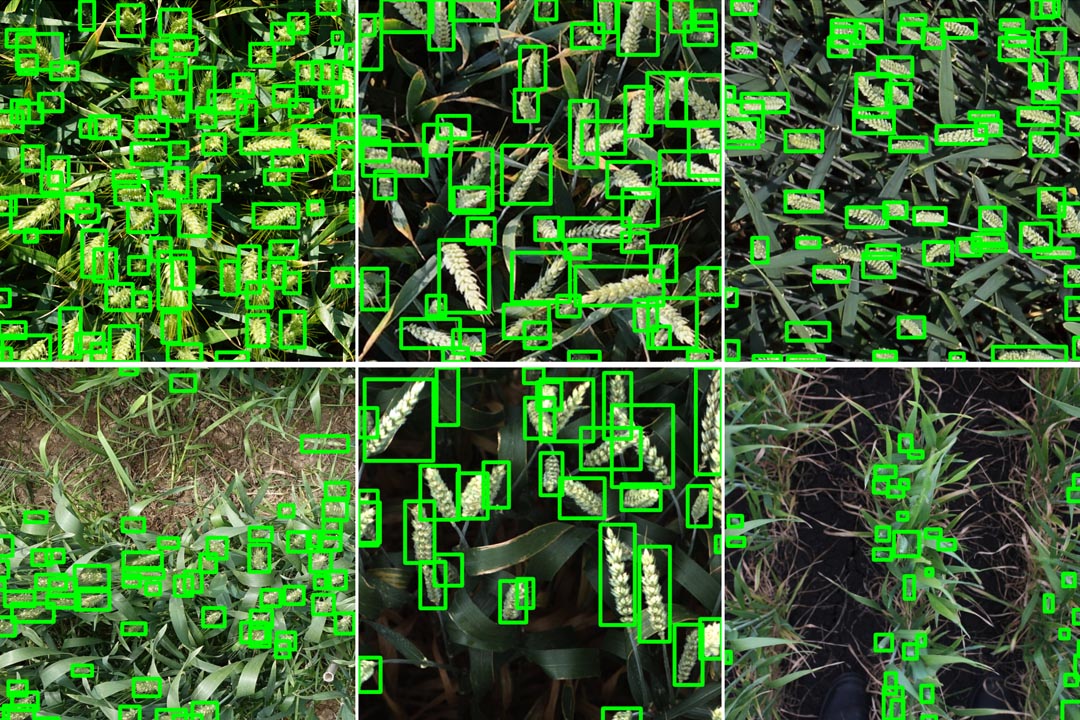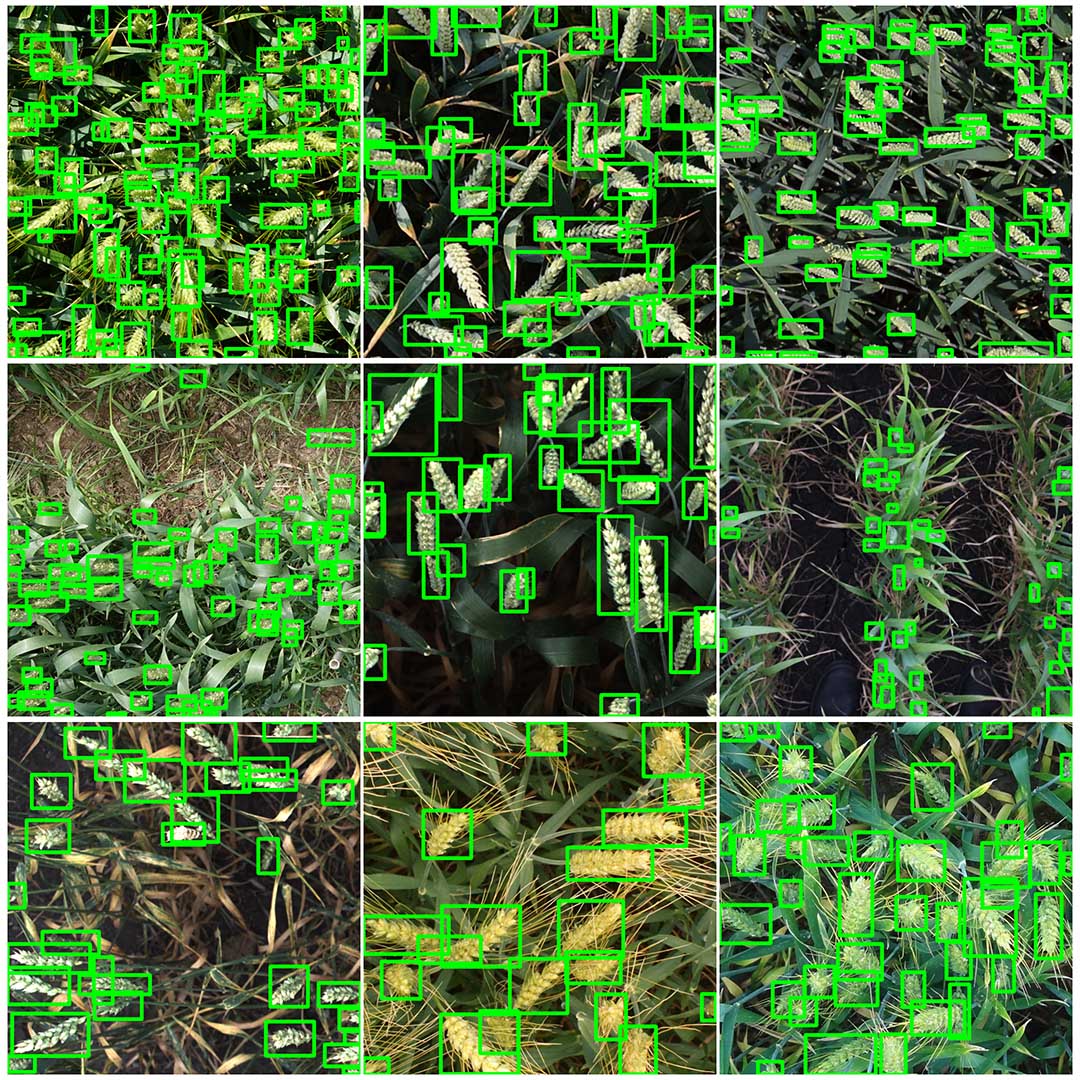
USask and GIFS host global software competition to advance digital agriculture
Accurate determination of the number of wheat heads (the grain-bearing tip) in a field is vital for estimating yields in wheat crops, but the usual method—manual counting from digital images—is a long and tedious job.
By USask Research Profile and GIFSTo address this problem, University of Saskatchewan (USask) computer scientist Ian Stavness and international partners at eight other research institutions organized a competition, the Global Wheat Head Detection Challenge, to develop a computer software model for more effectively counting wheat heads using image analysis—an advance that will benefit agricultural producers, breeders, and researchers studying plant traits (phenomics) for genetic improvement.
USask’s Global Institute for Food Security and Plant Phenotyping and Imaging Research Centre (P2IRC) together offered US$15,000 in total prize money for the top three winners. The challenge was to design a software model for accurately counting more than 190,000 wheat heads (also called “ears”) from diverse digital images from around the world.
“Competitors had to analyze pictures of wheat plants and identify all of the wheat spikes (heads) in the images,” said Stavness, a member of the P2IRC team.
“We collected images of wheat fields from around the world and the main challenge was to find a solution that works across all these different wheat varieties and images,” Stavness said.
“We wanted to make sure that the software created from the competition will work not only for the university wheat fields in Saskatoon, but that it will work just as well for a farmer in Herschel, Saskatchewan or one in Lampman, Saskatchewan, or even for a farmer in Australia. Almost all the submissions used advanced ‘machine learning’ methods to solve the problem, which is why the competition is called a machine learning or data science competition.”
More than 2,270 teams competed from around the world. The top three winning teams are from Japan, the United States, and Vietnam. The winners are listed here: https://www.kaggle.com/c/global-wheat-detection/leaderboard
The competition was run on Kaggle.com, which is the most prominent website for data science competitions. The new model will be publicly available through open science: https://www.kaggle.com/c/global-wheat-detection/overview
“At GIFS, we appreciate how vital innovation is to enhancing plant breeding and the entire production agriculture process,” said Steve Webb, GIFS chief executive officer. “This is why we were very pleased to support this important competition that will help advance wheat head counting, and we are thrilled about the exciting ideas that have come forward to innovate this manual process.”
The competition is associated with the Computer Vision Problems in Plant Phenotyping workshop of the European Conference on Computer Vision to be held on Aug. 28: https://www.plant-phenotyping.org/CVPPP2020


